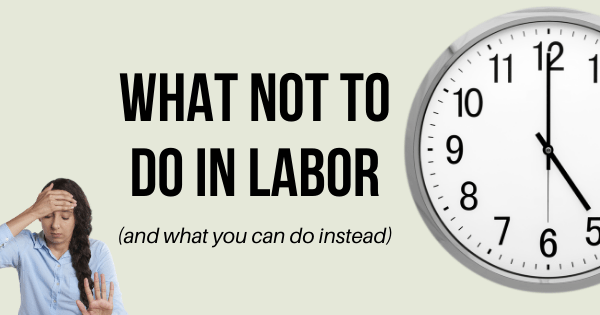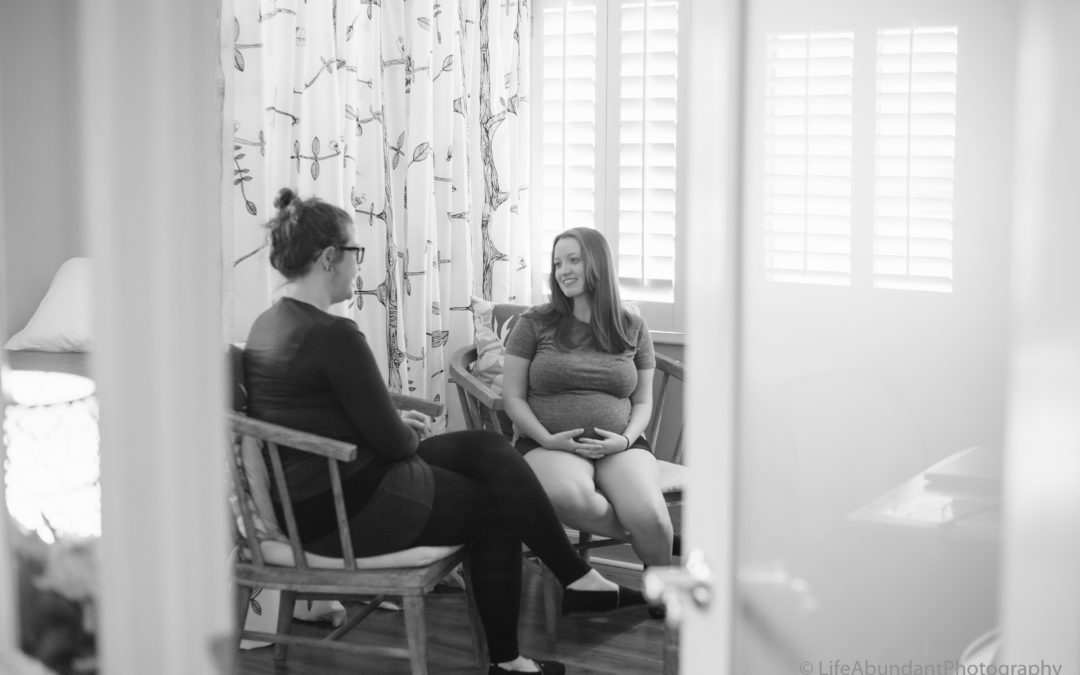
How to be an Awesome Birth Partner
Five Ways You Can be an Awesome Birth Partner
Pssst. Hey you, yes YOU.
The partner. The support person. The other half.
I know right now a lot of the attention is placed on the pregnant person (rightfully so!), but YOU’RE super important, too. Right now more than ever. You’ve been running out for those late-night snacks, you’ve been there for the pregnancy milestones and now you’re wondering how to prepare for labor.
You may have just learned that no one else will be allowed to come to your birth location with you. Perhaps you were planning to have a doula present alongside your mom and mother-in-law. Maybe you had plans all along for it to be just the two of you. Either way – you may be wondering, “What can I do? How can I provide the best support?”
I’m a doula – a person trained in supporting people through labor and birth – and I’m here to share with you some of the best tips I have for supporting a person in labor.
Take care of yourself
You may have read that and thought, “What?! What about the person having the baby?” But seriously, you have to take care of yourself too. Eat, drink. Bring lots of snacks. Please. Use the bathroom. Many, many times I have had to remind partners to eat and use the bathroom during labor. Rest if she is resting, or take a break. Nurses and birth assistants will be your best friend. Let them know you need just a moment to step out in the hall. I promise you won’t miss the birth of your baby during this brief moment. PRO TIP: Pack breath mints or gum – your partner will thank you for it.
Offer physical support
As the birth partner, you likely you already know where the laboring person appreciates touch when needing comfort.
Massage: The neck or lower back are good places to start. You can offer foot rubs or temple rubs too. More ideas here.
Counter pressure: Place force with your hands on the lower back or hips to alleviate pressure. YouTube can help you out beforehand with how-to videos.
Movement: Help her stay moving. SO important. Even if pain management is used, work with the care team to help her change positions in bed. Maybe she is out of bed and you’re slow dancing back and forth.
Offer emotional support
Perhaps your partner is getting tired/worried/stressed, or maybe she is rocking right along! Encourage her! When she says, “I can’t do this,” remind her “You ARE doing this.”
Other ideas:
“You are so strong and capable.”
“You are safe.”
“Your body knows how to do this.”
“We are a great team. I love you.”
“We’re going to meet our baby soon.”
You will know what to say in the moment. Perhaps you have a shared inside joke. It’s okay to joke in labor – do it! At some point in labor she may not laugh at your jokes anymore. Don’t worry – it’s not because you aren’t funny anymore, it’s because things are moving along wonderfully.
Breathe
Easy right? Well during labor, a birthing person may feel the urge to tense up and hold their breath, and you may do the same. Encourage her to do this with you. Develop a rhythm. Slow deep breath in through your nose and deep exhale out. Encourage her to make noise while doing this if needed. You can place an affirmation here too “Nice, big, deep breath for you and baby.”
Hire a doula, and take childbirth classes!
If your hospital has instituted a one-support-person rule, you can still hire a doula for virtual support. “Virtual doulas” can meet with you virtually before the birth to help you plan and prepare. They can walk you through the tips I have mentioned here (and more!). They can support you with finding evidence-based information to make decisions. They can be available as an emotional outlet before, during and after labor. They can call, text, and/or be continually present through video chat during labor to support not only the birthing person but you as well.
Don’t skip the childbirth classes! You’ll both learn about the ins/outs of labor from start to finish, comfort measures, how to navigate medical interventions, breastfeeding, newborn care, and more. Good childbirth classes are designed to help you be the best support person you can be! A lot of times, fear comes from the unknown. Childbirth education classes can fill in a lot of those unknowns for both of you. And thanks to technology and online learning and meeting platforms, you can now take many classes from the comfort of your living room.
You’ve got this.
You can and will be an AMAZING support person.

Danielle Shelton
Doula, Babymoon Inn
Danielle Shelton received her bachelor’s degree in Communications from Arizona State University. She is a wife and mother of two, and a Babymoon-Inn Certified Doula.



 Concern that they will no longer be able to bring a doula to their birth
Concern that they will no longer be able to bring a doula to their birth

 DON’T watch the clock.
DON’T watch the clock. 




